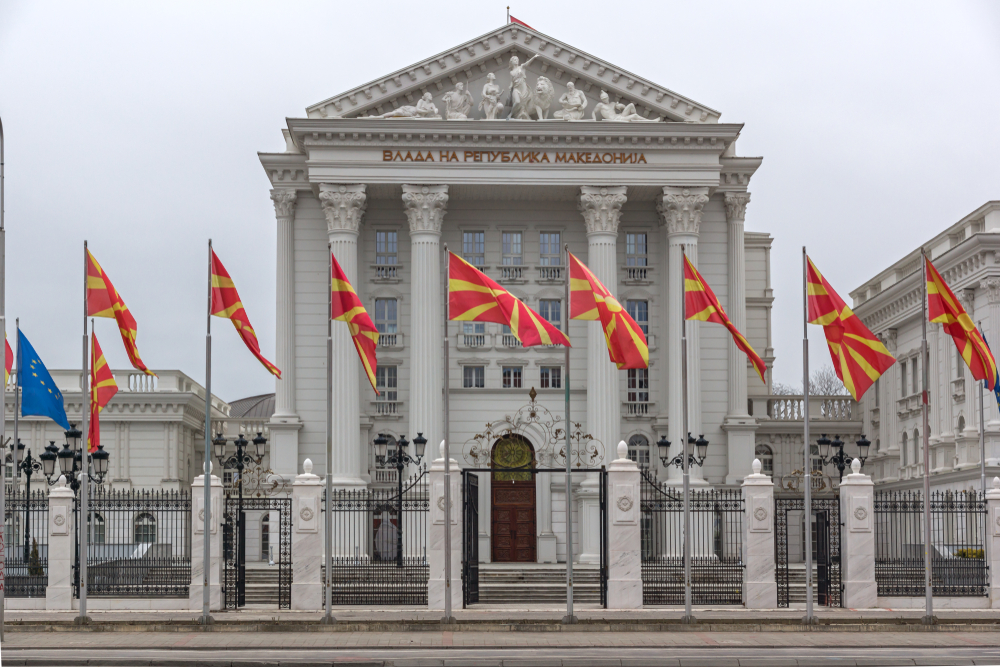The United Macedonian Diaspora (UMD), the leading voice of Macedonians abroad, has expressed strong concern regarding the cyber-attack, which has already lasted for more than four days, on the Macedonian State Election Commission website on July 15th.
Macedonia is NATO’s 30th and most-recent member. NATO Secretary-General Jens Stoltenberg has stated that an attack on one member nation is an attack on all. Accordingly, this cyber incident should trigger an Article 5 action in support of Macedonia, under the aegis of the NATO “collective defence commitment.”
Cyber-based tampering with national elections is a growing concern in even the most advanced democracies around the globe. A NATO investigation of the incident in Macedonia could serve as a model for other Western countries that may experience cyber-based vote tampering in the future.
UMD categorically rejects the demands of Albanian minority political parties that the next prime minister must be of Macedonian-Albanian heritage. After every election, the Albanian minority political parties impose de facto blackmail to every government, demanding more and more political power and “rights”. This is perverse when in reality Macedonia provides most human rights of any country in the European Union. Instead of imposing demands in an attempt to solidify the “Tirana Platform” with the ultimate goal of federalizing Macedonia, the Albanian minority should start demonstrating the most basic respect toward their homeland the Republic of Macedonia, its flag, its anthem, and its tax laws.
UMD’s position was that Macedonia should not hold elections during a period when COVID-19 cases are increasing daily, with Saturday’s number at 241 positive cases being the highest to date and more deaths per million population in the region.
UMD shares the sentiments of the OSCE Office for Democratic Institutions and Human Rights Special Election Assessment Mission and reiterates that “legal stability was undermined by substantial revisions to the Electoral Code and subsequent ad hoc regulations enacted during the state of emergency.” According to the OSCE-ODIHR, ODIHR recommendations remained “unaddressed, including those pertaining to the universality and equality of the vote in the electoral district abroad, revision of electoral district boundaries by an independent body, rights of persons with disabilities, and an effective campaign finance audit.”
In 2011, Macedonian citizens abroad were given the right to vote at Macedonian Embassies and Consulates, however, for the first time since the law was enacted, that right was taken away by the State Election Commission. Its apparent partisan nature was questioned by the ODIHR Special Election Assessment Mission. UMD has long advocated for critical improvements in the voting system abroad, including e-voting, postal ballots, and opening more voting stations where larger Macedonian communities reside.
Prior to the next elections, the country should change its six-district electoral system to a one-district electoral system, to give the opportunity for more citizens to get involved in the democratic process, compared to current parliamentarians that put their party interests first, instead of the interests of their constituents. The hegemony of the current two-party, plus ethnic Coalition partner system has diminished the democracy, rule of law, and government institutions in Macedonia.
In addition, while the State Election Commission has confirmed over 1.8 million registered voters Macedonia has not held a census since 2002, seriously raising the question that ballots may be manipulated by the Commission, government, political parties, and/or local authorities. Various sources, such as the World Bank, contend that as many as 650,000 Macedonian citizens have moved out of the country in the past 20 years. A successful census must be a priority for the next government.
Finally, UMD calls for all parties, especially the two largest Macedonian parties SDSM and VMRO-DPMNE to work together for the benefit of Macedonian national interests.

